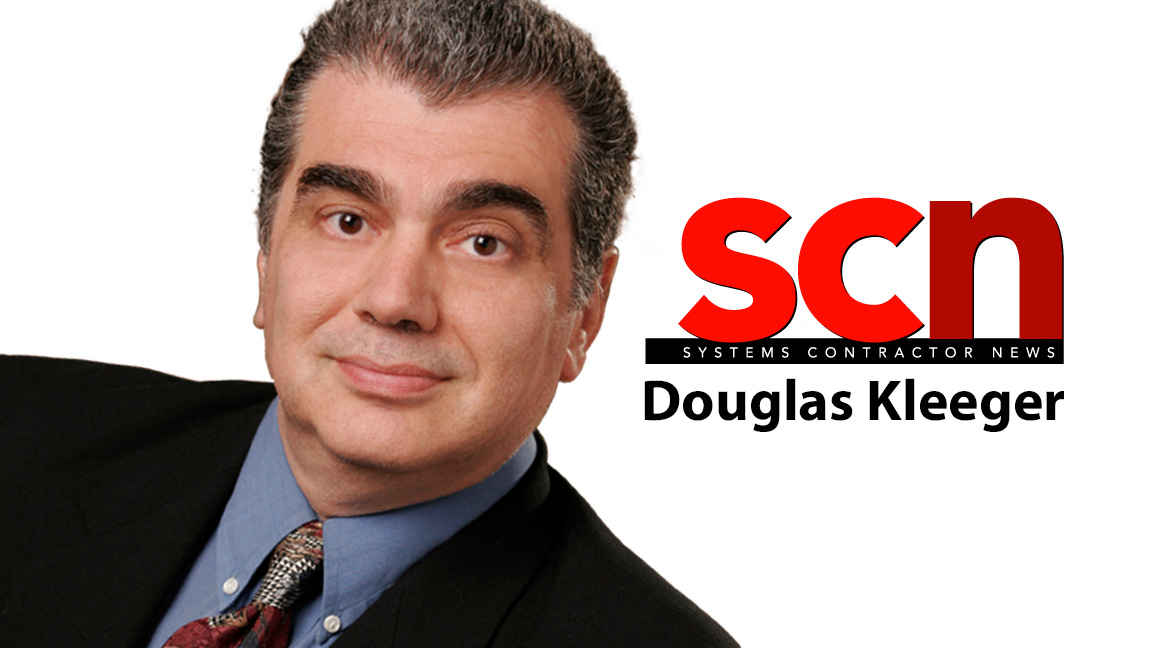Deposits in advance of you starting a project are not only necessary and standard practice, but should never, ever be waived. I've been working in this industry for many years; my typical terms for integration/installations are one-third deposit before start of work, one-third when the installation starts, and one-third upon completion, with a clause for substantial payment in the event there are some lingering items.
[Beyond the Tech: Watch Your Language]
As a consultant, it’s also one-third deposit before work starts, additional payments based on deliverables, and COD upon completion. No, I do not wait until my client gets paid to get paid. There are just too many variables. For starters, I am typically not privy to the relationship my client has with the end user, not to mention the stability of the end user.
Bad Commercials
Let me give you an example. Some years ago, when I was still active in the film industry, I was hired as the location sound and equipment supplier and recordist. As usual, I agreed to a flat rate, with the condition that I would be paid COD upon completion. Yes, I know we are talking about deposits, but crews don't get deposits to start work. This story is relevant because it illustrates the absolute absurdity of what can happen.
Regardless of the position of the company that hires you, never feel uncomfortable asking for a deposit before you start work.
The gig was a TV commercial with about a $1 million budget featuring Michael Jordan for a major food brand. It was a weeklong shoot in Birmingham, AL, including four days of shooting/recording at multiple locations, followed by a day with Jordan recording his dialogue. Yeah, it was cool to meet Jordan and work with him.
I finished my work a few hours early and was released for the week. I checked out of the hotel and got my check. Turns out my check bounced—and I started hearing rumors that nobody got paid or was getting paid.
As I recall, the company making the commercial, was using the deposits from commercials not shot yet to pay the previous commercials costs. So, when a big commercial that was lined up canceled, the company had no money and went bankrupt. They did make good on my check, as it is a crime here in Georgia not to do so, but it was a disaster. People go out of business every day, and likely will not tell you of their difficulties while you're on the job.
Pull the Plug
Here's another example. Recently, a former coworker, who was now working for an AV integrator, asked me if I could help engineer a broadcast project. I said no, as I had other commitments, but I was able to make a recommendation for a broadcast consultant that worked out for him. Of course, as I bowed out, I told the consultant to give me a call if he got the project and needed some engineering support.
[Beyond the Tech: Problem Solving Against the Clock]
My referral led to the start of a relationship between the integrator and consultant, and they proceeded with the project. Later, I got a call from the consultant to assist with the engineering. We entered into an agreement, and I requested and received a one-third deposit for engineering services. The overall size of the AV project, including the broadcast component, was more than $1 million.
Now it starts to get complicated. My friend called me and said the company that had recently purchased the AV integration company for which he had been working decided to pull the proverbial plug on the newly acquired AV side of the business. Just like that, the company canceled the AV contract we were all working on.
The consultant I had been working for had done some billing but had not been paid—and for whatever reason, they did not get a deposit up front. What if they don’t get paid anything or even reimbursed for my deposit? Typically, a deposit for a project is not transferred to another project. However, I recommended the consultant, and they gracefully paid me my deposit. I'm working closely with the consultant so his company doesn't take a loss, which I think is the right thing to do.
But what a mess. What were the chances that a multi-year, big-money project would dissolve so fast, and under these circumstances?
Respect the Process
Regardless of the position of the company that hires you, never feel uncomfortable asking for a deposit before you start work. No matter the terms they established with their client, get your deposit up front and set up a contract for payments with milestones.

For me, it’s about process and procedure, something I have preached for years. Contracts are unnecessary—when everything goes as planned. But from small project nuances to larger issues to catastrophes like what I've shared, maintaining your procedure of getting a deposit will help you from suffering too much of a loss if a project goes sideways.
While my horror stories are pretty extreme, they do happen, and I suspect are more common than you imagine. Protect yourself and be comfortable to walk away from folks if they won’t pay you a deposit. It doesn't matter if it's "not their style." If they don't have the money to front you, or they want you to wait for them to get paid, don't do it.
Club Rules
I want to share a method I have used successfully when dealing with nightclubs. Many, many integrators flat out refuse to do business with nightclubs, having been burned more than once.
I once installed a system for the brother of a very famous celebrity, who opened a club. I got a deposit and was to receive weekly payments on Mondays. Payments were scattered, as the brother would spend the money over the weekend, and when we would meet on Monday, no money. Solution: My DJ friend would call me on busy Saturday nights, and I would go there at 4 a.m. to collect.
[On Your Business: Choosing Not to Work with a Client]
So, by chance, I came up with a different method. I would get a deposit (at least one-third) to install the system. The club owner would sign a lease-to-own contract, whereas there would be monthly payments over the course of a year or two. It was in the contract that I owned the equipment until the lease was paid off, and if they missed a month and did not make good within a few weeks, I could go in and remove the system. In New York, you would have to fill out and file with the state a form called a UCC1, which registered the property as your personal property.
How did it work? Basically, when I sat with the club owner, he would ask, “You're saying if I make 18 payments and then stop, you still own the system and can take it?” I would say, “Right. Are you going to miss any payments?" Desperately needing the system to open, they would say, "Of course not.” I would then say, “Then you have nothing to worry about. Sign here.”
If they closed up, I could take the UCC1 forms to the sheriff, get into the building, and retrieve the system. Without those forms, the system would be sold off to pay the club’s debt.
Nightclubs are a great and rewarding market—just get it done right and in writing.

